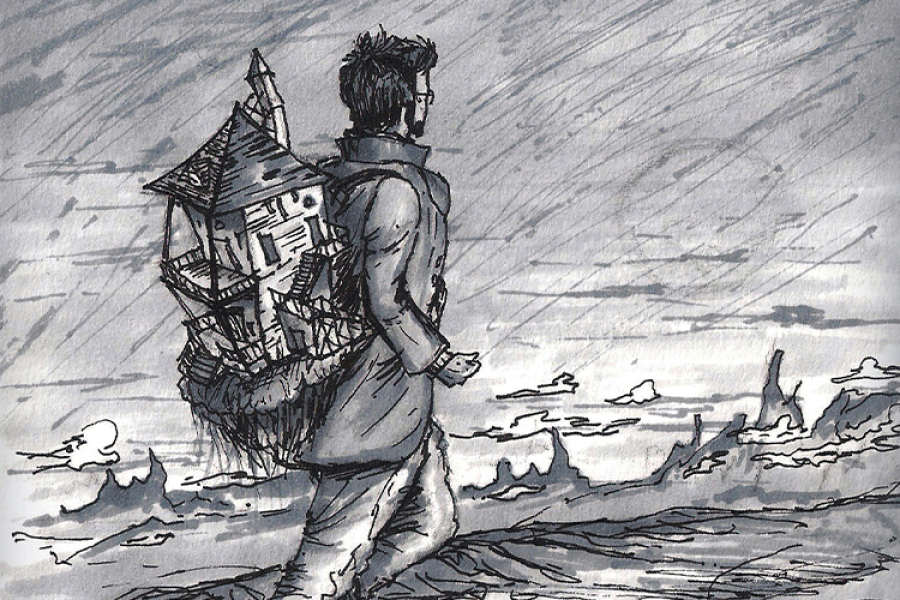New York, January 25, 2024—ICTJ is pleased to announce the winners of its “Overseas” writing contest. In it, young people originally from or currently residing in Lebanon, Libya, or Tunisia who have left their home countries for political or socioeconomic reasons were asked to share their personal experiences of migration in the form of a short-written testimony.
“This contest allowed us to spotlight some powerful young voices and their own personal migration journeys, which have been mixed with despair, sadness, but also determination, dignity, and hope,” explained Nour El Bejjani, Head of ICTJ’s Lebanon program. “Their stories help us better understand the diverse reasons why young people migrate, the challenges they face, and how migration personally affects them, which in turn helps in designing effective interventions and solutions to the migration crisis.”
The winners include Rayan Mansour (Lebanon), Joelle Al Cheikh (Lebanon), Nay Ghorra (Lebanon), Maisara Sassi (Libya), and Ali Omar (Libya). Aya Chriki (Tunisia) and Mohsen AbdelMohsen Al Zaher (Lebanon) received a special mention. Chriki’s testimony is representative of the experience of many young Tunisians who dream of a better life, while AbdelMohsen Al Zaher’s submission reflects the aspiration among many young Lebanese to live in a civil state without any sectarian divisions.
The jury was composed of prominent writers, academics, and human rights defenders from Lebanon, Libya, Iraq, and Tunisia. They reviewed the numerous submissions, selecting the winners based on their creativity, originality, and potential to provoke thought, debate, and meaningful change.
“In most of the texts, the migration experience is talked about with a lot of nostalgia and a lot of pain. Migration is expressed as an identity, a relationship with others, and a desire to return,” observed jury member Mohamed Jouili, a professor of sociology at the University of Tunis and the former general director of the National Youth Observatory in Tunisia. “Most of the texts described experiences of forced migration, which is why they were burdened with anxiety.”
“My experience as a jury member had a profound impact on me,” Tarek Lamloum, a Libyan activist and human rights defender, said candidly. Over the course of his 13-year career, Tarek has worked closely with migrants, refugees, and asylum seekers and knows their struggles well. “Reading their [the contestants’] accounts—especially those who excelled in their storytelling, in expressing their mixed, peculiar, humorous, and heartbreaking emotions with precision—was a uniquely enriching experience. It was one of the most pivotal moments in my professional and humanitarian journey.”
The winners will now attend an international conference organized by ICTJ. The event will bring together experts, policymakers, and civil society leaders from Lebanon, Libya, and Tunisia as well other countries in the Middle East and Africa, including The Gambia, Morocco, Syria, and Yemen, to discuss migration, its root causes, and its consequences at the global policy level. The winners will have the chance to share their experiences and contribute ideas for potential solutions to the migration crisis. ICTJ will also compile the winners’ testimonies and others in a book for publication in English, Arabic, and French.
“In their texts, all the contestants conveyed an immediate readiness to return home, provided the right conditions were in place,” noted ICTJ Senior Expert Salwa El Gantri. “It is thus imperative today that we focus on the causes of migration and the associated brain drain, as these young people were meant to be the leaders of tomorrow in their countries of origin.”
__________________
PHOTO: "My Moving Castle," by Khalid Al Hamwi, was a notable entry in ICTJ's 2022 Wide Awake Art Content, which invited Lebanese and Tunisian artists as well as artists living in Lebanon or Tunisia to explore the theme “the Sound of Dissent.” (ICTJ)
